Ride the Revolution: Explore Spiro’s Cutting-Edge Electric Bike Manufacturing Transforming Mobility in Kenya

On October 6th and 7th, I had the privilege of meeting with the Spiro leadership team, including CEO Kaushik Burman, at their Nairobi headquarters in Westlands. During this visit, the team provided an exclusive tour of their cutting-edge assembly plant located along Mombasa Road.
Spiro is ambitiously carving out its position as the foremost electric vehicle (EV) manufacturer in both East and West Africa, with a strong focus on electrifying two-wheeled transport at scale. Backed by a $100 million injection from the Equitane Group, this pioneering startup concentrates exclusively on electric motorcycles and the critical infrastructure that supports boda-boda (motorcycle taxi) operations.
Central to Spiro’s strategy is its innovative battery-as-a-service model, where the company retains ownership of the batteries and operates a network of automated swapping stations. This approach directly addresses two major hurdles for boda-boda riders transitioning to EVs: the high upfront cost of batteries and the limited availability of charging infrastructure. By enabling battery swaps in under a minute, Spiro minimizes downtime and keeps riders on the road.
This system transforms the economics of motorcycle ownership by cutting operational expenses by 30% to 50% compared to traditional petrol bikes. Riders save money by eliminating fuel costs and benefiting from reduced maintenance needs, making electric motorcycles a more cost-effective option over time. Spiro monetizes this by charging a fee of KES 290 (around $2.24) per battery swap, effectively positioning itself as a utility provider managing both energy supply and maintenance. Unlike competitors such as Roam, Spiro’s batteries are exclusively swapped at their Petrocity petrol stations and cannot be charged at home.
Nairobi’s Local Assembly Facility
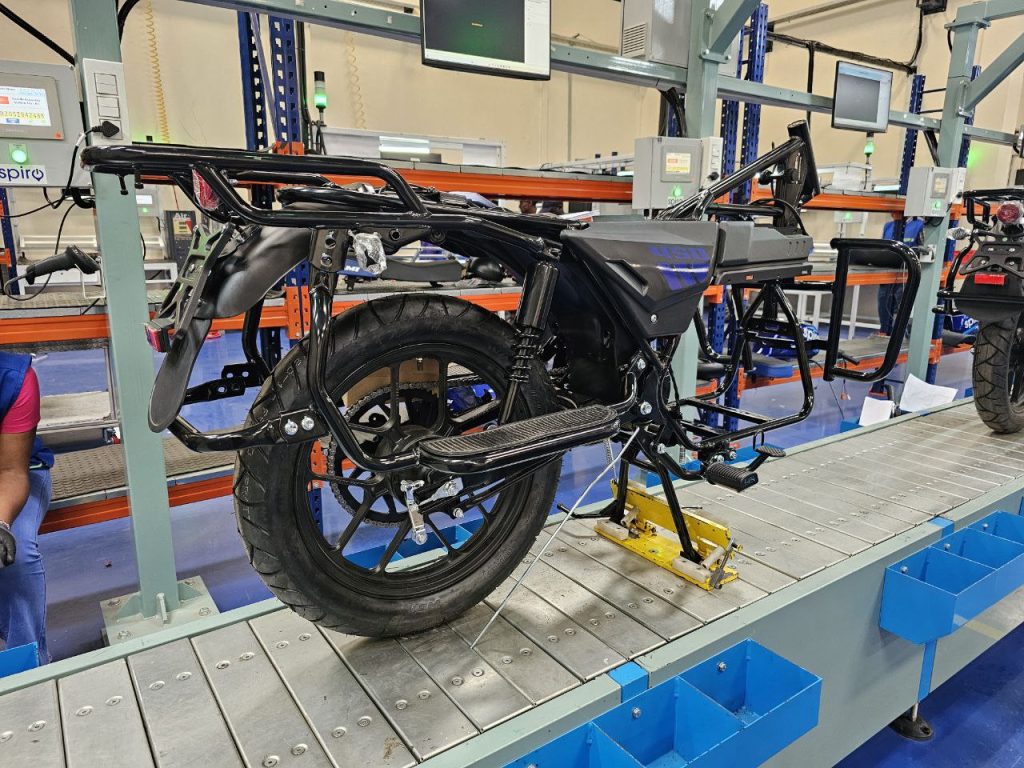
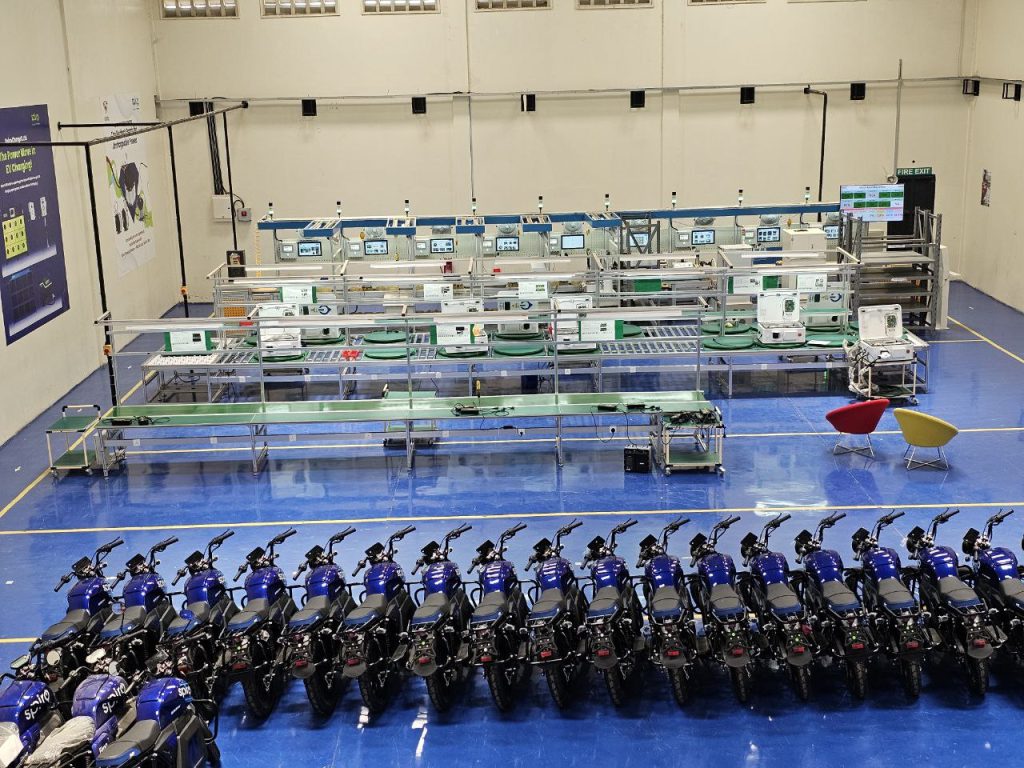
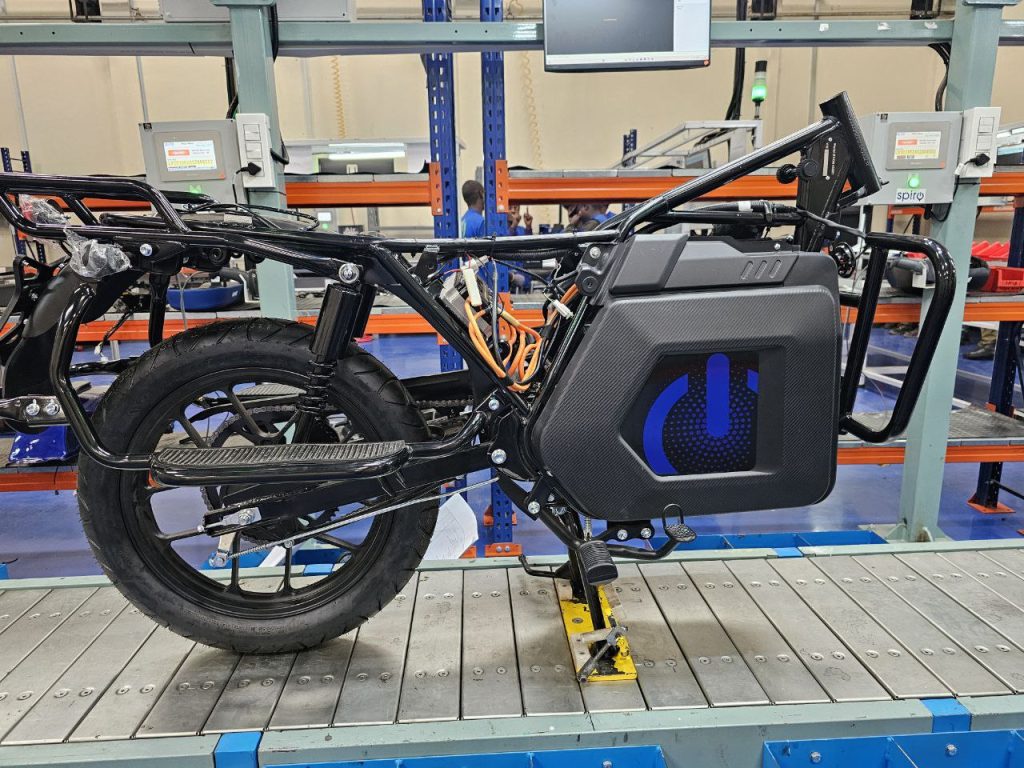
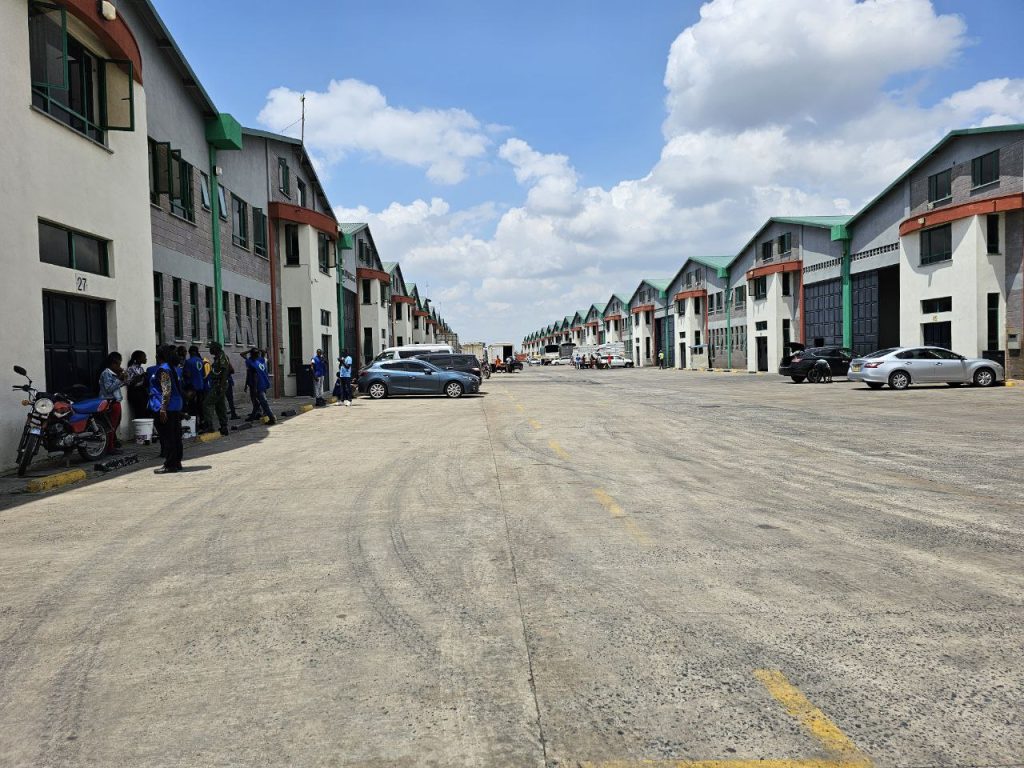
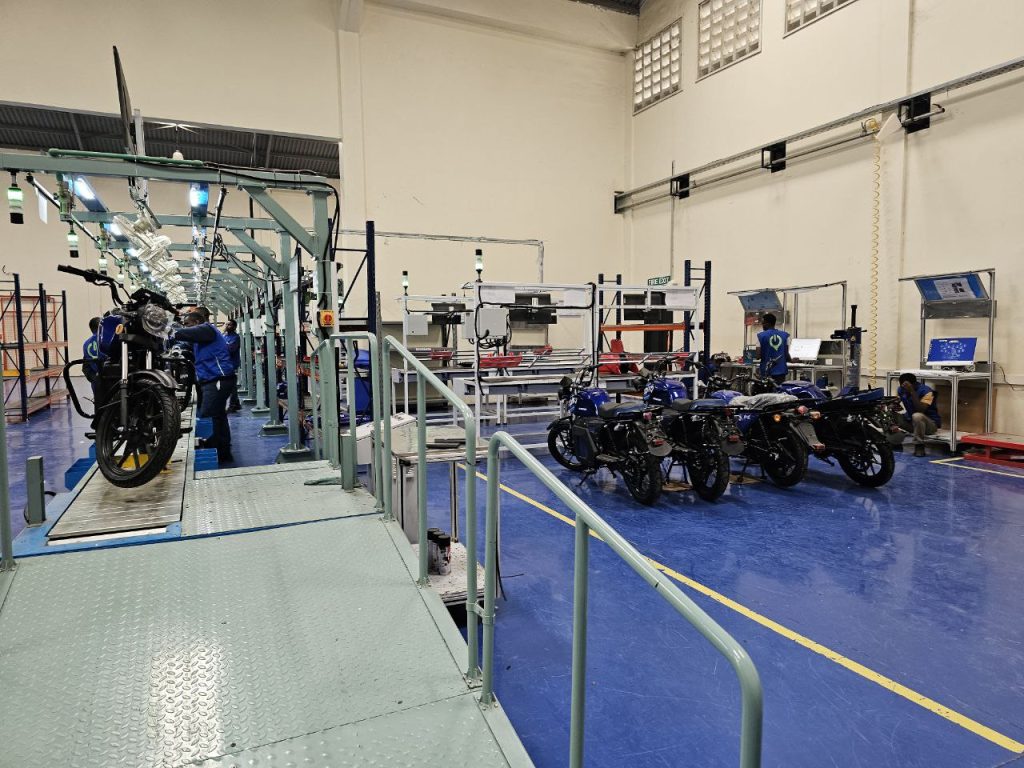
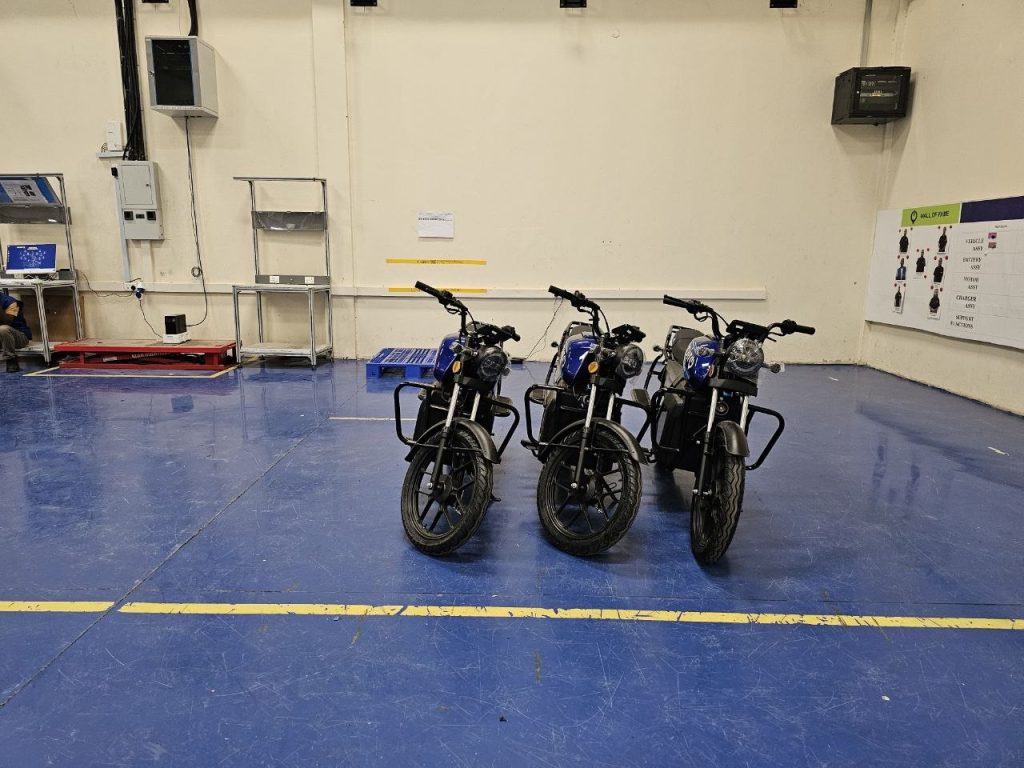
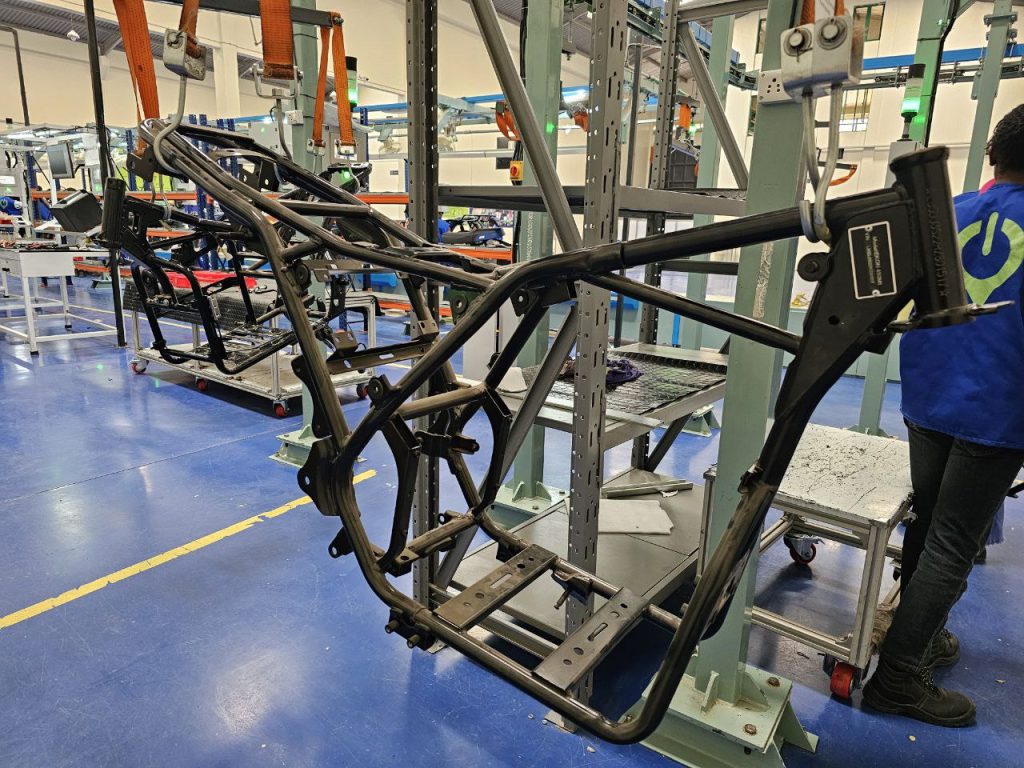
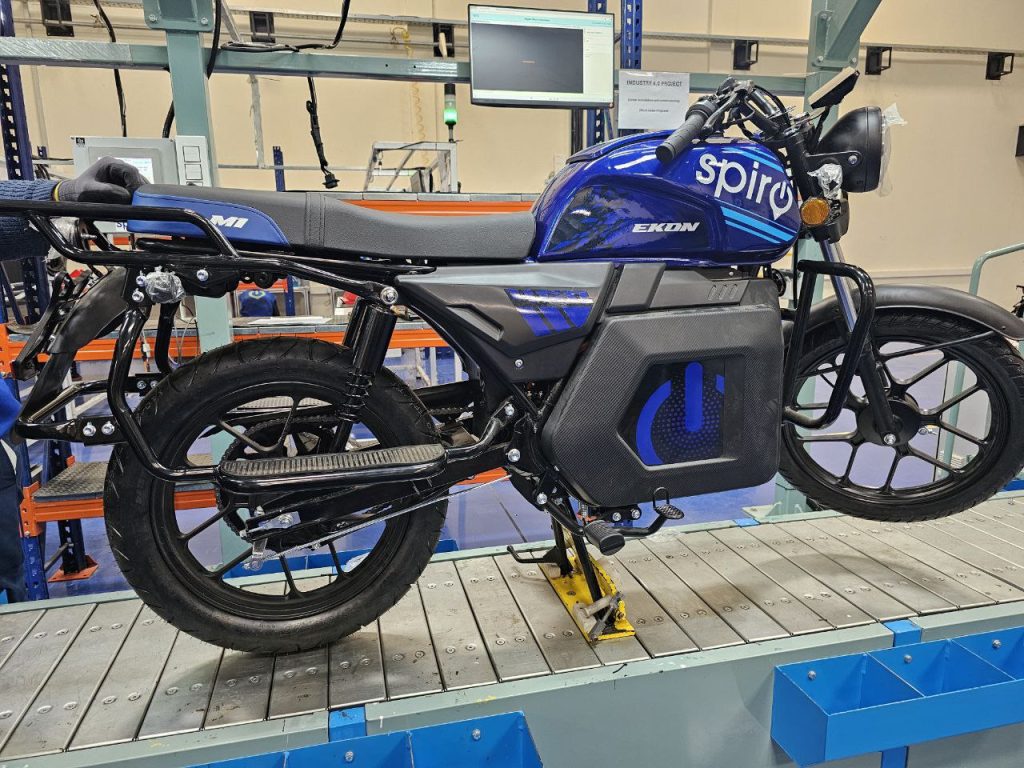
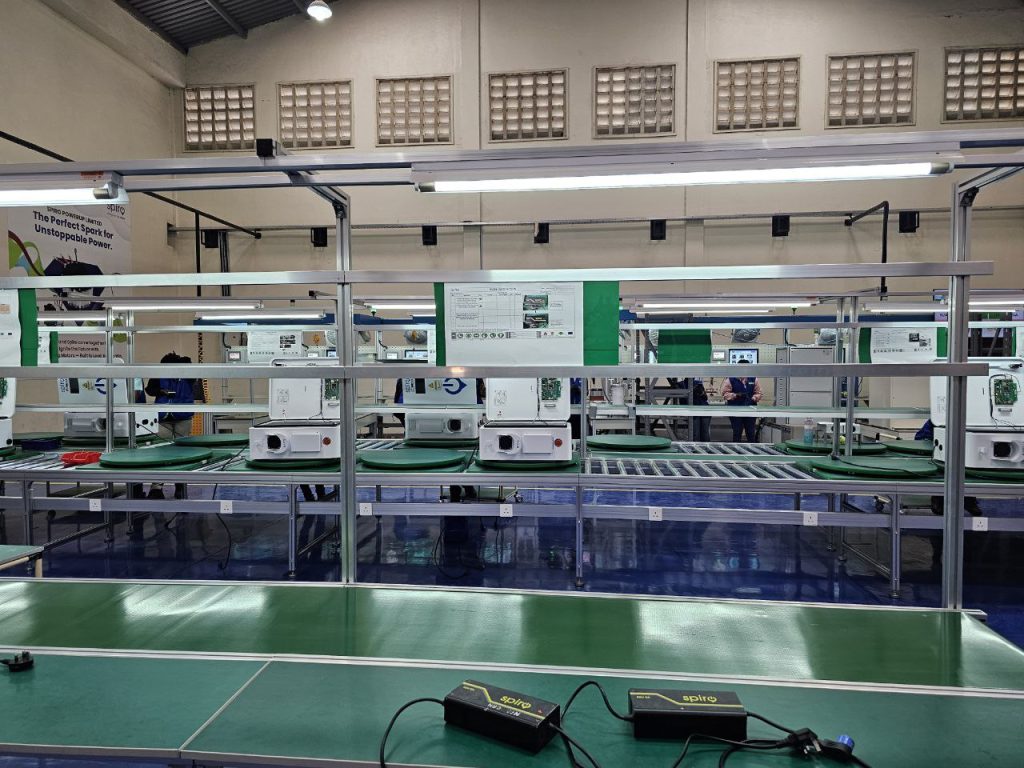
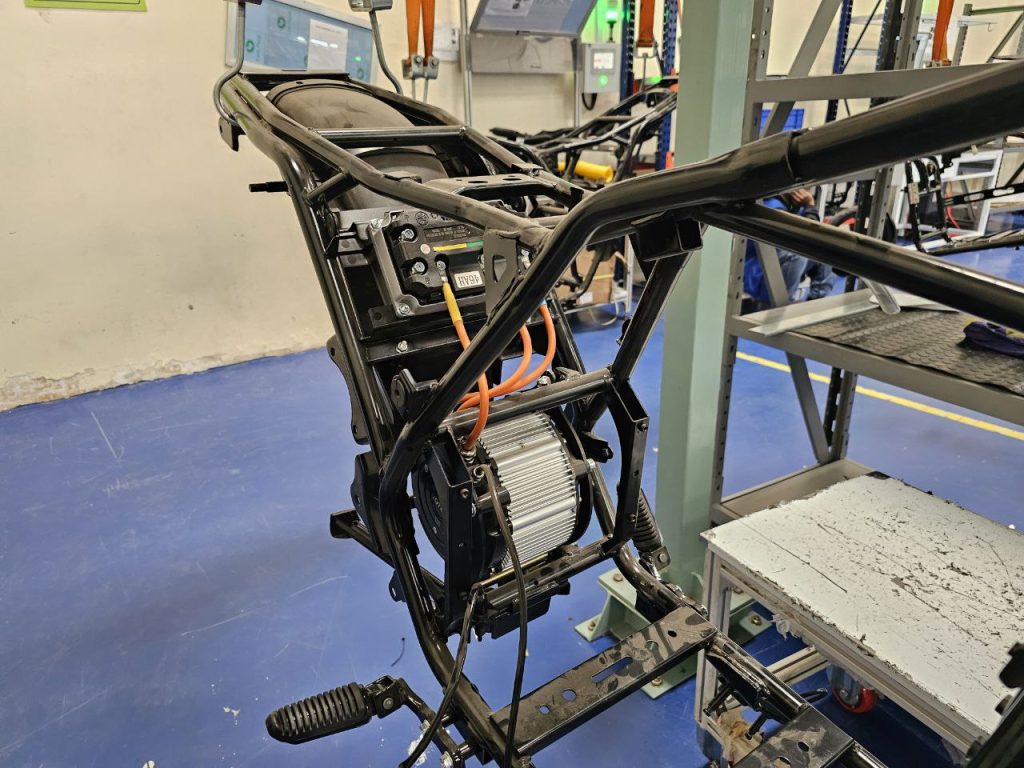
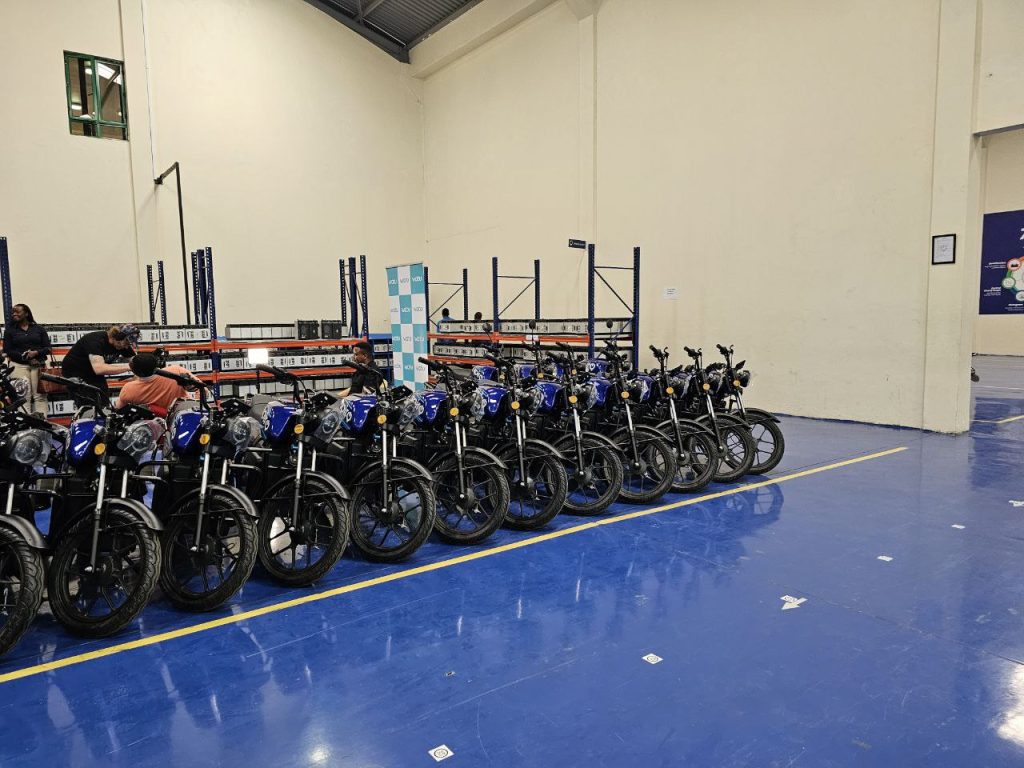
Spiro’s dedication to local production is embodied in its Nairobi assembly plant on Mombasa Road. This facility plays a pivotal role in the company’s broader strategy to transition from importing fully assembled motorcycles to assembling them domestically, thereby retaining more economic value within the region.
The company operates four manufacturing hubs across Kenya, Rwanda, Uganda, and Nigeria, forming a regional network that cuts down on shipping costs and creates jobs locally.
A standout feature of the Nairobi plant is its predominantly female assembly workforce. Women make up over 40% of Spiro’s manufacturing staff, both directly and indirectly, marking a significant stride in an industry traditionally dominated by men.
A technician explained that components arrive as kits, and a team of 20 to 40 workers-mostly women-carefully inspect motor windings, bearings, and seals to ensure they meet waterproofing standards.
The electric motors themselves are produced locally.
Assembly includes fitting the motor controller, wiring harnesses, battery modules, and battery management system, followed by installing the frame, suspension, brakes, and dashboard display. Each bike undergoes thorough bench and road testing before shipment.
“About 20 of us handle the technical assembly,” one technician shared while tightening a bolt.
Battery Management and Environmental Responsibility
Spiro leverages proprietary Internet of Things (IoT) technology to track its fleet of 100,000 batteries in real time, enabling smart diagnostics and optimizing battery swaps for safety and efficiency.
When batteries degrade to roughly 80% of their original capacity, they are retired from vehicle use but repurposed for secondary applications.
To ensure environmentally responsible disposal, Spiro collaborates with Ace Green Recycling to handle lithium-ion battery and manufacturing waste recycling.
Although local assembly has lowered costs, most materials for electric motorcycle production are still imported, with only 30-40% sourced regionally.
The battery cell remains the largest cost driver, accounting for 35-40% of the vehicle’s price and is entirely imported. Despite tax incentives and reduced logistics costs from local assembly, Spiro remains exposed to global supply chain fluctuations and price volatility for this critical component.
Technical Specifications of Spiro Motorcycles
Designed specifically for the demanding needs of boda-boda riders, Spiro’s flagship model, the EKON 450M1, delivers a nominal power of 4.5 kW, peaking at 9 kW, with a top speed just below 85 km/h and a battery range between 80 and 100 km per charge.
The earlier Spiro Commando model offered 6.5 kW of power, reached speeds up to 80 km/h, and had a 40 km range per 2 kWh battery.
Both models feature durable suspension systems built to withstand rough terrain-though most operate on paved urban roads-LED headlights, and metallic storage boxes equipped with integrated USB charging ports.
Market Reach and Operational Scale
Spiro’s extensive operations highlight its market leadership, with data showing rapid growth and expansion.
The company holds about 21% of Kenya’s total motorcycle market, including petrol-powered bikes. It dominates the electric vehicle segment with over 90% market share in Kenya, covering both electric motorcycles and cars, and commands 52% of the electric motorcycle market specifically.
Currently, Spiro has deployed roughly 34,000 electric motorcycles across Kenya, Uganda, and Rwanda, with additional units distributed in West African markets. Their ambitious “Project Thunder” aims to increase this fleet to 100,000 bikes in the near future.
To accommodate the heavy daily usage of commercial riders-who often cover over 150 km, sometimes up to 180 km-Spiro maintains a large battery inventory. The company reports having deployed over 100,000 batteries and completed more than 23 million battery swaps.
This high battery-to-bike ratio is a deliberate tactic to ensure ample energy reserves, enabling quick battery swaps and easing range anxiety for high-mileage riders, though it requires substantial upfront capital.
The supporting infrastructure includes over 1,000 battery swap stations, with approximately 200 located in Kenya, mainly concentrated in the western regions.
Battery Swap Pricing Structure
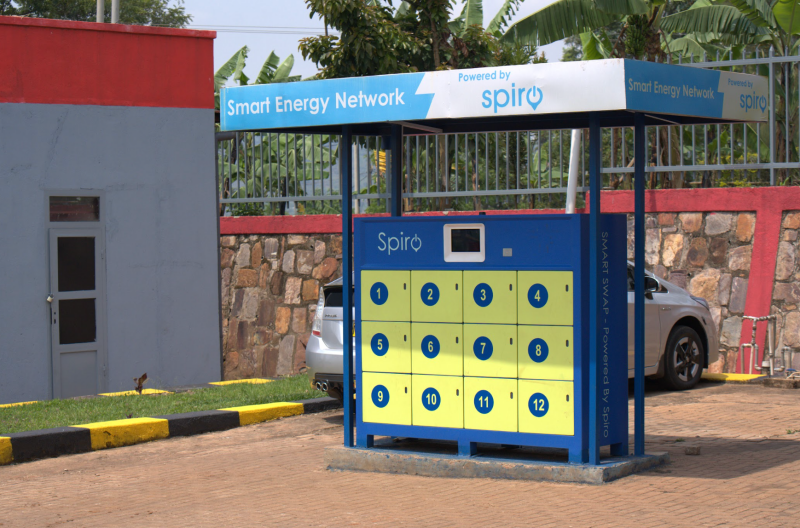
Spiro’s business model demands significant capital investment across motorcycles, batteries, and swap stations. By retaining ownership of the batteries, the company transforms what would traditionally be a costly purchase into a subscription-style energy service.
For riders, this means predictable and generally lower costs compared to fueling petrol motorcycles. An 80 to 100 km trip on a Spiro bike costs about $2.24-the price of one battery swap. In contrast, a petrol motorcycle with an 11-litre tank, at KES 185 per litre, spends roughly $15.60 to cover 500 km, making Spiro’s electric option approximately 30-40% more cost-effective per kilometre.
Investment and Institutional Partnerships
Since 2022, Spiro has raised over $180 million through multiple funding rounds. Its investors include Afreximbank, Société Générale, and the Africa Transformation and Industrialisation Fund.
In 2023, the company secured $60 million in debt financing from Société Générale and GuarantCo to expand its fleet and battery swapping infrastructure in Kenya and Uganda. In 2024, it raised an additional $50 million from Afreximbank to support market entry into Cameroon and Morocco, as well as to scale its automated swap station network.
Support from development finance institutions provides Spiro with patient capital and bolsters its credibility in climate finance circles-advantages often unavailable from private investors for capital-intensive ventures.
Financing Solutions and Rider Integration
While Spiro assumes the risk associated with battery assets, it collaborates with vehicle financiers such as Kenya Commercial Bank (KCB), Mogo, and Watu Credit to manage retail credit risk for the motorcycles themselves.
This partnership facilitates rider acquisition by offering financing options accessible even to those without traditional banking services, leveraging mobile money platforms for payments.
In Kenya, the upfront cash price for a Spiro electric motorcycle is relatively steep at around KES 295,000 (approximately $2,290), with a down payment of KES 20,000 required for credit purchases.
However, some customers have reported paying as low as KES 195,000 ($1,509) in cash. The $2,290 figure more accurately reflects the total cost over the loan term (typically 24 to 30 months), including principal, micro-asset financing interest rates, insurance, and registration fees, all managed by the financing partner.
In Rwanda, Spiro recently launched the EKON electric bike at a competitive price of just $500, a strategic move aimed at capturing the Kigali market ahead of government mandates requiring all new public transport vehicles to be electric.
At Spiro’s Nairobi headquarters, a command center monitors live data such as bike battery levels, swap station availability, and payment transactions. According to Raymond Kitunga, Spiro’s deputy country head for Kenya, this transparency is vital for collaborating effectively with asset financiers, who require detailed insights into the customers they support.
Kenya Market Expansion and Rider Stories
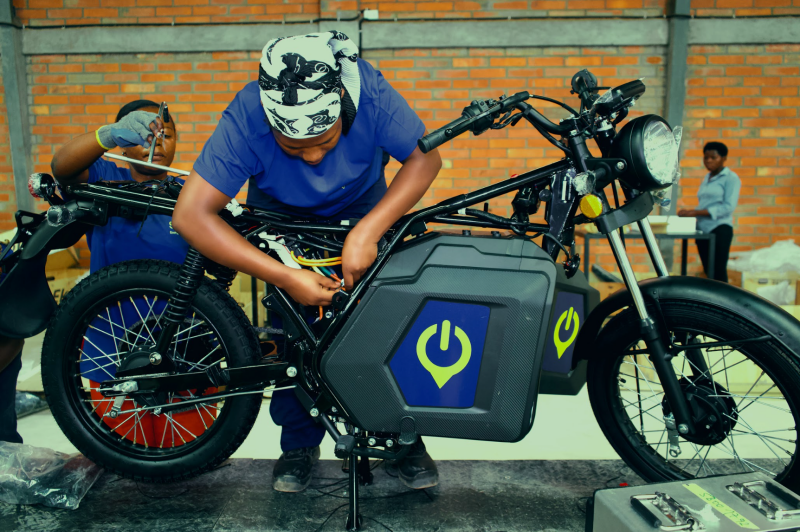
Kenya serves as Spiro’s central hub, hosting its headquarters and main assembly plant in Nairobi. The company initially launched operations in Mombasa before expanding to Nairobi’s outskirts, including Kiambu, Kajiado, and Machakos, and later extending to Eldoret and Kisumu.
Currently, Spiro operates over 200 battery swap stations across Kenya, supported by financing partnerships with Watu Credit, KCB, and Mogo.
During my visit, I met Kelvin, a rider collecting his new electric motorcycle. He had made a KES 25,000 (around $190) deposit through Mogo and planned to pay the remaining balance in daily installments of KES 450 (approximately $3.45) over 18 months, totaling about KES 283,000 ($2,180).
Kelvin intends to use the bike for boda-boda services and has already applied to join Uber as a rider. “I can manage the payments,” he said confidently as he rode off.








Leave a Reply